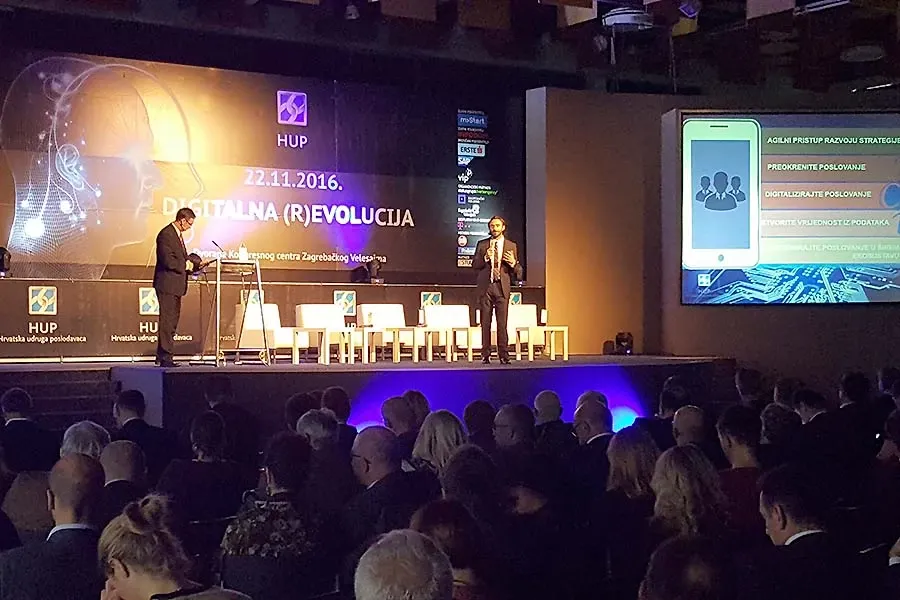Qualcomm Announces Snapdragon 8 Gen 5 Platform
Qualcomm added its latest smartphone platform to its premium-tier Snapdragon range.

Croatian Employers' Association has organized a big conference on digital economy. The idea of today's conference was to take a look at the state of development of the digital economy in the Republic of Croatia, at the opportunities and threats the digitalization brings to Croatian entrepreneurs.
"The digital economy is growing seven times faster than the rest of the economy. It's all part of the Digital Agenda of the European Union within the large Agenda 2020 where the digital portion is recognized as a priority," said Boris Drilo, Management Board member of HT. He added that it is very significant that Croatia is assuming "the presidency of the EU in 2020".
According to him, there are a lot of things in the digital economy that we are very good at, but there also are many things where we can do much better.
Davor Majetić, President of the Croatian Employers' Association, points out that today is a very important day because this is the beginning of something new. According to him, a lot has changed in the last 10 years, and we cannot pretend that there is no digital economy, it just is not so.
"The digital transformation is very important for the growth of economy in the EU. This is a new and real industry revolution. It has much to offer in business, can change the way we do business ", said Markus J. Beyrer, managing director of BusinessEurope.
He says that last year has shown that more than 90 percent of CEOs believe that digital transformation is very important for their companies, but only 50 percent of them have a strategy for such a digital transformation.
By 2020, the digital transformation could bring a 4 percent GDP growth in Europe, says Beyrer. Although there is a potential, the transformation happens too slowly, 1.7 percent use the potential of the digital economy. On the other hand, 40 percent do not use the potential of the digital economy at all. The problem is that we are behind the investments in high speed internet access as well. There should be more than USD 200 billion of investments in this segment, Beyrer points out.
We need to think about how to exclude large fragmentation in the telecommunications market which has more than 110 telecoms while China, the US and India have way less, how to fight with investments that are then equally fragmented, explains Breyer.
Here, in his words, we should consider about the joint spectrum within the European Union, and certainly the rapid introduction of 5G networks that are the next step in mobile telephony.
"We need to create proper strategies and national Governments must build economic development on this. Digital transformation must not only be looking at problems but also at the great benefits brought to the European economy ", concluded Beyrer.
Martina Dalić, Deputy Prime Minister of Croatia and Minister of Economy, SME and Crafts, points out that ICT has become of key importance, makes 4 percent of GDP, employs more than 6 million people and generates revenues of 580 billion euros. The digital transformation makes it possible to achieve growth of as much as 110 billion euros by using digital technology in daily operations.
According to her, we currently hold the 16th place in the EU when it comes to digital economy and have the opportunity to create new businesses and new jobs. The private sector must lead the process of digital transformation, but the country must transform itself and its services.
"The world is changing, the convergence of technologies such as IoT, cloud computing, 3D printing, all this is changing the ways we do business, and learn as well. It changes the entire economy" explains Dalić.